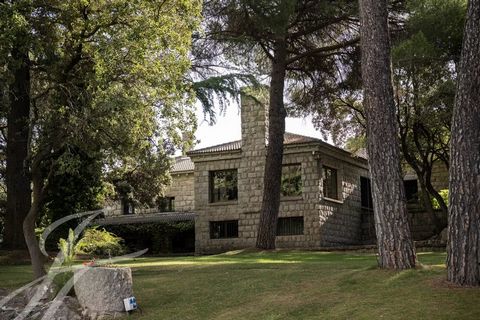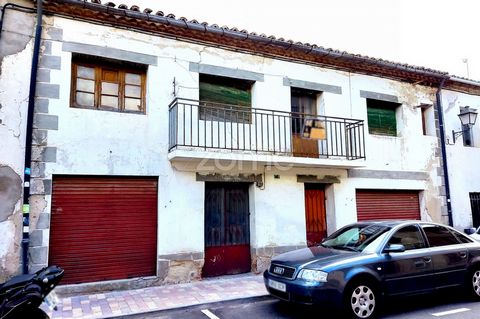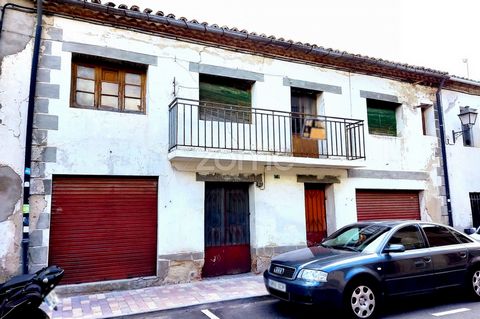In a beautiful natural environment full of oaks, pines and junipers is located this wonderful farm of 80 hectares, just 25 minutes from Madrid and just 5 minutes walk from the center of the town to which it belongs. In the foothills of the Sierra de Guadarrama, the farm has different properties: a main stone house of 611m2 on two floors, with heating, air conditioning, three huge living rooms with fireplace, kitchen with office, five bedrooms and 4 bathrooms. In addition, this house has more than 120m2 of porches. The property also has a second house of 171m2 built, with living room with fireplace, kitchen, four bedrooms and three bathrooms. The third property, located next to the swimming pool and with more than 100m2 built, has a large open space and two changing rooms, oriented to a recreational use in the summer season. The fourth building is the caretaker's house, of 81m2 and consisting of a living room, kitchen, two bedrooms and a bathroom. As sports constructions, we find a fronton and a paddle court. In addition, as adjacent buildings, we have a stable (enabled to accommodate horses), a chicken coop, a haystack, a game room (formerly a garage), a farmhouse and a warehouse. In addition, the farm has abundant water, with 11 wells in total and a spring that, in addition to storing water, is incredibly beautiful, as can be seen in the photos. It is worth mentioning the beautiful views that can be found throughout the farm, especially of the Monastery of El Escorial, and the fauna and flora of the area, with a multitude of animal and plant species. It is a unique property, due to its proximity to both the capital of Spain and the municipality to which it belongs, ideal as a recreational property or as a hotel and catering operation with many possibilities of use and enjoyment. The northwest mountain range of Madrid is one of the most beautiful places of the Spanish geography. Natural division between both Castillas, its natural wealth, its proximity to the capital and its multiple services make it a privileged environment to live within the area of influence of the capital of Spain. Features: - Barbecue - Tennis - SwimmingPool


